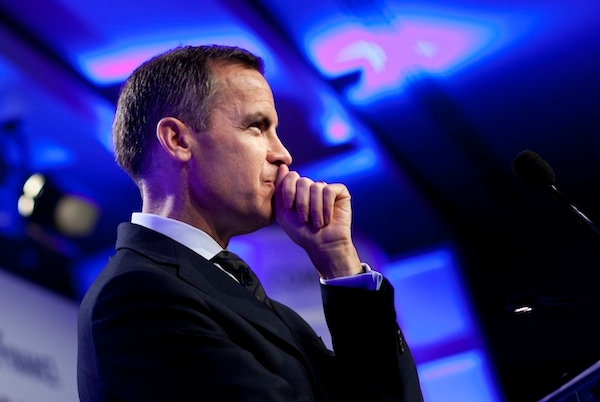In Washington last week, I encountered amazement that the Bank of England is about to be run by a foreigner. This was not because of any contempt for Mark Carney, the Governor of the Bank of Canada, who will soon succeed Sir Mervyn King, but because Americans could not imagine how a job so pivotal in the national psyche could be bestowed on someone with a different allegiance.
The Fed, though far from popular in a country constitutionally suspicious of central power, does have a mythic, incorruptible status. As a result, the chairman, Ben Bernanke, has a tiny (by banking standards) salary. Last year, he was paid $199,700. This is markedly less than the housing allowance of £250,000 a year that will be paid to Mr Carney, let alone the more than £600,000 a year which he will receive in salary. Does this vast difference in pay tell us something?
Mr Carney’s nationality is not much of a problem in Britain, since we do not regard Canadians as full-blooded foreigners, but I do think there is another issue. It is that, because of the ‘independence’ of central banks nowadays and the introduction of quantitative easing, they have become huge political players. The very fact that they are at arm’s length means that they can conduct economic policies which governments want without the markets taking fright. QE is the Chancellor’s biggest single weapon, yet one which he can claim he does not control.
The trend, both here and in America, is for the central bank to get more and more involved in economic management. In the eurozone, the ECB virtually dictates to errant countries.
When he arrives in London, Mr Carney will be expected by the government to invest in private sector assets to get the economy moving, but the decision will be his, not its. There will then, rightly, be demands to make the Governor more politically accountable. And here the high salary and housing allowance give a clue to the problem. Mr Carney is contracted to be with us for only five years, so he is taking more money now, and no pension. People who know him say he wants to be the Liberal Prime Minister of Canada. If that is true, is it right that he should use the British economy as the guinea-pig for his policies and the springboard for the culmination of his career? Now that even a Pope can step down, virtually every job in the world has become something that the holder can put on his CV for the next one. Mervyn King is often criticised, but he has preserved a high reputation for the Bank by clearly acting without a political motive. If that reputation does not survive him, what will markets do then?
This is an extract from Charles Moore’s Notes from this week’s Spectator. Click here to read the full article. You can subscribe to the Spectator here.







Comments